Books
Order By
Filter By Topic
- Agriculture & Food
- Anarchism
- Art & Architecture
- Autobiography & Memoir
- Biography
- Business & Economics
- Decolonization
- Disability Studies
- Education
- Environmental Studies
- Ethnic Studies
- Film & Media Studies
- Gender Studies
- Geography
- History
- Human Rights
- Icelandic Studies
- Identity Studies
- Immigration
- Indigenous Studies
- Inuit Studies
- Labour Studies
- Law
- Letters & Correspondence
- Linguistics
- Literary Criticism
- Literature
- Medical History
- Mennonite Studies
- Métis Studies
- Military History
- Museum Studies
- Music
- Oral History & Storytelling
- Performing Arts
- Political Studies
- Public Policy
- Religion
- Resource Management
- Social History
- Sports & Recreation
- Translation
- Urban Studies
- Women's Studies
Filter By Author
- Kerry Abel
- Christopher Adams
- Jennifer Adese
- Helen Olsen Agger
- Freda Ahenakew
- Kateri Akiwenzie-Damm
- Taiaiake Alfred
- John Allardyce
- Bob Altemeyer
- Anahareo
- Chris Andersen
- Kim Anderson
- Jennifer Anderson
- Judy Anderson
- Colin R. Anderson
- Mark Cronlund Anderson
- Paul Andrew
- Michael Angel
- Bob Antone
- Birna Arnbjörnsdóttir
- Joanne Arnott
- Tim Aubry
- Jillian Austin
- Marilyn Baker
- Richard Balasko
- Jennifer Ball
- Marilyn Barber
- Dale Barbour
- Leo Baskatawang
- Robert E. Beamish
- Rebecca Beausaert
- Ervin Beck
- Mary A. Beckie
- Alexander Begg
- Yale D. Belanger
- Yale Belanger
- Warren Bernauer
- Haraldur Bessason
- Ustun Bilgen-Reinart
- Cynthia Bird
- Christina Birdsall-Jones
- Birna Bjarnadottir
- Jill Blakley
- Jim Blanchard
- Duncan Blewett
- Leonard Bloomfield
- Eva A. Bogdan
- Mark Bomford
- Marleny M. Bonnycastle
- Phillip Borell
- Patricia Bovey
- Gerald Bowler
- Joseph Boyden
- Katherine Boyer
- Andrea Bradford
- Jennifer Brady
- Úlfar Bragason
- Di Brandt
- Jennifer A. Braun
- Albert Braz
- Marian Bredin
- Robert Brightman
- Gayle Broad
- Samara Brock
- Stephen Brooks
- Curtis Brown
- Deidre Brown
- Jennifer S.H. Brown
- Robin Jarvis Brownlie
- Jarvis Brownlie
- Christopher Bryant
- Ryan Bullock
- J.M. Bumsted
- Robyn Bunn
- Kristin Burnett
- Bonnie Burns
- Karen Busby
- Ila Bussidor
- Dennis L. Butcher
- Colleen Bytheway
- Alison Calder
- Wayne J. Caldwell
- Wayne Caldwell
- Maria Campbell
- Sonia Cancian
- Mary Agnes Capilano (Lixwelut)
- Joe Capilano (Sahp-luk)
- Stanislao Carbone
- Warren Cariou
- Keith Thor Carlson
- John Carpenter
- Ian Carr
- Sarah Carter
- Jennifer Carter
- Ma-Nee Chacaby
- Rebecca Cherner
- Julia Christensen
- Patricia Chuchryk
- David Church
- Kelly Clark
- Dana Claxton
- Chantal Clement
- Emmet Collins
- Michelle Coupal
- Robert Coutts
- Andrew Cowell
- Helen Coy
- Aimée Craft
- Daniel Shank Cruz
- Clint Curle
- Ruth Cuthand
- Dayna Danger
- Jim Daschuk
- Katsitsén:hawe Linda David Cree
- Heather Dean
- Bill Deen
- Alex Deighton
- Andrew Dennis
- Frances Desjarlais
- Anais Detolle
- John Devlin
- Madeleine Dion Stout
- Jill Doerfler
- Louis-Jacques Dorais
- Heather Dorries
- Henry E. Duckworth
- Louise Duguay
- Joan E. Durrant
- Erika Dyck
- Alexander Dyck
- Paul D. Earl
- Emily Eaton
- Ferdinand Eckhardt
- Fred Edge
- Paul Edwards
- Renate Eigenbrod
- John Elias
- C. Douglas Ellis
- Lois Emery
- Robert Englebert
- Richard A. Enns
- Jo-Ann Episkenew
- Marlene Epp
- Stefan Epp-Koop
- Bruce Erickson
- John Everitt
- Angela Failler
- Helen Fallding
- Andrew Faries
- Susan Farrell
- Sherry Farrell Racette
- Vera Fast
- Amanda Fehr
- Lawrence Felt
- Erica Ferguson
- Barry Ferguson
- Teri Redsky Fiddler
- Elizabeth Finnis
- Chantal Fiola
- Lionel LeMoine FitzGerald
- Phil Fontaine
- Peter Foote
- Timothy P. Foran
- Laura Forsythe
- Renee Fossett
- Sid Frankel
- Patricia Franks
- Crystal Gail Fraser
- Mini Aodla Freeman
- Joshua Freistadt
- Willie Frenchman
- Alexander Freund
- Gerald Friesen
- Jean Friesen
- Marcy Friesen
- Peter Frost
- Aya Fujiwara
- Delia Gavrus
- Felicia Gay
- Gary Gerber
- Becca Gercken
- Dale Gibson
- Lee Gibson
- Jodi Giesbrecht
- James P. Giffen
- Alison Gillmor
- R.J. Glendinning
- Adara Goldberg
- Alexey Golubev
- Dan Goodley
- Joan Grace
- Katherine Graham
- Margaret Graves
- Arthur Green
- Charmaine Green
- Kelly Greenop
- Shiloh Groot
- Amanda Grzyb
- Finnbogi Gudmundsson
- Eric Guimond
- Jeff Gundy
- Rita F. Gunn
- Sophie Gunner
- James Gunner
- Ankit Gupta
- Paul Hackett
- Sigurjon Baldur Hafsteinsson
- Louise Bernice Halfe
- James Hanley
- Heidi Harms
- James B. Hartman
- Cameron Harvey
- C. Nathan Hatton
- Travis Hay
- Franchesca Hebert-Spence
- Daniel Heidt
- Robert Henry
- Rory Henry
- Gordon Henry Jr.
- Jack Hicks
- Tomson Highway
- Susan M. Hill
- Janice C. Hill
- Stew Hilts
- Rhonda L. Hinther
- Arny Hjaltadottir
- Darrin Hodgetts
- Abram Hoffer
- Steven M. Hoffman
- Brendan Hokowhitu
- Ann Hostetler
- Terrance Houle
- Stella Hryniuk
- Huddart Kennedy
- David Hugill
- Robert Alexander Innes
- Zbigniew Izydorczyk
- George Jacob
- Stephen Jaeger
- Robert Jennings
- Jon Johannesson
- Lionel Johnson
- Josee Johnson
- E. Pauline Johnson (Tekahionwake)
- Faith Johnston
- Basil Johnston
- Basil H. Johnston
- Esyllt W. Jones
- Harlo L. Jones
- Daniel Heath Justice
- Jim Kâ-Nîpitêhtêw
- Fannie Kahan
- Elspeth Kaiser-Derrick
- Julia Spicher Kasdorf
- Thomas Ka’auwai Kaulukukui Jr.
- Deborah Keahey
- George Kenny
- Nathalie Kermoal
- Selena Kern
- Serena Keshavjee
- Ahmed Khan
- Mary Kinnear
- Gabriel Kiokee
- Verna J. Kirkness
- Doreen Helen Klassen
- Fran Klodawsky
- Mustafa Koç
- Royce Koop
- Gerry Kopelow
- Lisa Koperqualuk
- Valerie J. Korinek
- Derek Kornelsen
- Paul Kraehling
- Larry Krotz
- Peter Kulchyski
- Keneva Kunz
- Whitney Lackenbauer
- Kiera L. Ladner
- Hugh Lafave
- Nanci Langford
- Elizabeth LaPensée
- Emanuel Lapierre-Fortin
- Catherine Larochelle
- Emma LaRocque
- Margaret Laurence
- Keith Lee
- Lloyd L. Lee
- Margaret Lehman
- John C. Lehr
- Darryl Leroux
- Karine Levasseur
- Claude Lévi-Strauss
- Charles Z. Levkoe
- Gabrielle Lindstrom
- Joel Linklater
- Yngve Georg Lithman
- Royden Loewen
- Hannah Loon
- Barbara Lorenzkowski
- D.M. (Donald Merwin) Loveridge
- Kristen Lowitt
- Brittany Luby
- Paul W. Lukens Jr.
- John Sutton Lutz
- Victor P. Lytwyn
- Catherine Macdonald
- Maria João Maciel Jorge
- Shauna MacKinnon
- Vera Manuel
- Emalene Manuel
- Lee Maracle
- Jane Mariotti
- Jennifer Markides
- Eric Marr
- Karen L. Marrero
- Susan Marshall
- Katherine Martens
- Keavy Martin
- Wanda Martin
- Thibault Martin
- Ralph Martin
- Orest T. Martynowych
- Courtney W. Mason
- Merle Massie
- Emily Masty
- Cathy Mattes
- William J. Mayer-Oakes
- Sophie McCall
- Mary Jane Logan McCallum
- Tyler McCreary
- J.D. McDougall
- Jonathan McGavock
- Naxaxalhts’i – Albert “Sonny” McHalsie
- Graham McInnes
- Brian D. McInnes
- Sam McKegney
- Sarah M. McKinnon
- Ellen McLeod
- Neal McLeod
- Margaret E. McPherson
- Tony McQuail
- Samantha Mehltretter
- George Melnyk
- Paul Memmott
- Rene Meshake
- Valerie E. Michaelson
- Rod Michalko
- Christine Miller
- Victoria Millious
- John S. Milloy
- John Mills
- Allen Mills
- Candice Minch
- Kimberly Minor
- Tracey Mitchell
- Jim Mochoruk
- Michael Moffatt
- Paul Moist
- Enos T. Montour
- Rick Monture
- Kimberley Moore
- Aaron Moore
- Scott L. Morgensen
- Leah Morton
- A. Dirk Moses
- Daniel David Moses
- Alonzo Moss, Sr.
- Morris Mott
- Phil Mount
- Devi Dee Mucina
- Shezan Muhammedi
- Adam Muller
- Jim Mulvale
- Erika Mundel
- Audie Murray
- Jorge A. Nállim
- Mitiarjuk Nappaaluk
- Ronald J. Nash
- Alan Nash
- Daphne Nash
- David C. Natcher
- Jesse Nathan
- James Naylor
- Hannah Tait Neufeld
- David Newhouse
- John D. Nichols
- Sarah Nickel
- Kevin Nikkel
- Patricia M. Ningewance
- Ken Norman
- Andrea Olive
- Stephen Osborne
- Humphry Osmond
- Lynn Palmer
- Herman Palsson
- Gisli Palsson
- Ruth Panofsky
- Jon Parmenter
- Julia Parrel
- Taqralik Partridge
- John Paskievich
- Kazimierz Patalas
- Sean Patterson
- Howard Pawley
- Agnieszka Pawłowska-Mainville
- Ian Peach
- Francis Peddie
- Laura Peers
- Julie Pelletier
- Tshaukuesh Elizabeth Penashue
- David H. Pentland
- Richard Perkins
- Armando Perla
- Jody Perrun
- Adele Perry
- Evelyn Peters
- Ian Peters
- Jacqueline Peterson
- David Petrasek
- Katherine Pettipas
- Ruth B. Phillips
- Allison Piché
- James M. Pitsula
- Mary Louisa Plummer
- Seriy Polyakov
- Jene M. Porter
- Barry Potyondi
- Christopher Powell
- Lyall Powers
- Susan Prentice
- Andrea Procter
- Sarah Prout
- Julie Rak
- Jan Raska
- Magdalene Redekop
- Deanna Reder
- Sabrina Reed
- Paulette Regan
- Jennifer Reid
- Mary Reid
- Suzanne Reid
- Waubgeshig Rice
- William Kahalepuna Richards Jr.
- Keren Rideout
- Christian Riegel
- Carmen L. Robertson
- Michael A. Robidoux
- Roy Romanow
- Arthur Ross
- Basil Rotoff
- Andrea Rounce
- Gabrielle Roy
- Molly P. Rozum
- Mohi Rua
- Bernard Saladin d'Anglure
- Kelly Saunders
- Todd Scarth
- David M. Schaepe
- Rebecca Schiff
- Norman Schmidt
- Gregory Scofield
- Steffanie Scott
- Simeon Scott
- Joan Scottie
- Elizabeth Sellers
- Alix Shield
- Carol Shields
- Annette Siddle
- Roger I. Simon
- Maureen Simpkins
- Wayne Simpson
- Niigaanwewidam James Sinclair
- Struan Sinclair
- Sasha Sky
- Doug Smith
- M.A. (Peggy) Smith
- Barbara A. Smith
- Raymond R. Smith
- Dan Smith
- Leah Sneider
- Paul G. Socken
- Tammara Soma
- Cathryn Sprague
- Isabelle St. Amand
- Christoph Stadel
- Heidi Kiiwetinepinesiik Stark
- S.E. Stewart
- Ian Stewart
- Kenneth Stewart
- Adrian Stimson
- Matthew Stock
- Daniel Stone
- Blair Stonechild
- Nora Foster Stovel
- Mandy Suhr-Sytsma
- Jennifer Sumner
- Survivors of the Assiniboia Indian Residential School
- Xavier Sutherland
- Isaiah Sutherland
- Erin Sutherland
- John Swift
- Frances Swyripa
- Thomas H.B. Symons
- David Szanto
- Irina Takala
- Lisa Tatonetti
- Vander Tavares
- Andrew Taylor
- Tiniwai Chas Te Whetu
- Guillaume Teasdale
- Ty P. Kawika Tengan
- Janis Thiessen
- Paul C. Thistle
- Paul Thomas
- Paul G. Thomas
- Jonas Thor
- Diana Thorneycroft
- Höskuldur Thráinsson
- Thomas Kimeksun Thrasher
- Wilfreda E. Thurston
- Hildi Froese Tiessen
- Paul Tiessen
- Travis Tomchuk
- Julie Tomiak
- Lani Trenouth
- Truth and Reconciliation Commission of Canada
- Alina Turner
- David Turner
- Joan Turner
- James Urry
- Gail Guthrie Valaskakis
- Kirsten Valentine Cadieux
- Richard van Camp
- Charlotte van de Vorst
- Penny Van Esterik
- Nancy Van Styvendale
- Julie Vandervoort
- Matt Ventresca
- Helene Vosters
- Jill Wade
- Jeanette Waegemakers Schiff
- Cathy Covell Waegner
- James B. Waldram
- Gene Walz
- Robert Wardhaugh
- Douglas Watkinson
- Murray Watson
- A.McKibbin Watts
- Teodoro Weckowicz
- Eddy Weetaltuk
- Mary Agnes Welch
- Ronald A. Wells
- John Welsted
- Adrian Werner
- Hans Werner
- Silas Wesley
- Cassie Wever
- Chris White
- Sarah Whitecalf
- Ted Whitecalf
- Fred Wien
- Lori Wilkinson
- Rob Willetts
- Kayanesenh Paul Williams
- Anna J. Willow
- Bronwynne Wilton
- Timothy C. Winegard
- Pita Richard Wiremu King
- Nelson Wiseman
- Kirsten Wolf
- H. Christoph Wolfart
- H.C. Wolfart
- Carmen Wong
- Angie Wong
- Andrew Woolford
- Wanda Wuttunee
- Sarah Wylie Krotz
- John Wynne
- Hannah Wynne
- Elizabeth Yeoman
- Roman Yereniuk
- Kathryn A. Young
- Jon Young
- Robert Zacharias
- Valerie Zink
- Konstantinos Zougris
Filter By Series
- Critical Studies in Native History
- First Voices, First Texts
- Perceptions on Truth and Reconciliation
- paskwāwi masinahikewina/Prairie Writing
- Studies in Immigration and Culture
- Human Rights and Social Justice Series
- Contemporary Studies on the North
- Publications of the Algonquian Text Society
- University of Manitoba Icelandic Studies
- Manitoba Studies in Native History
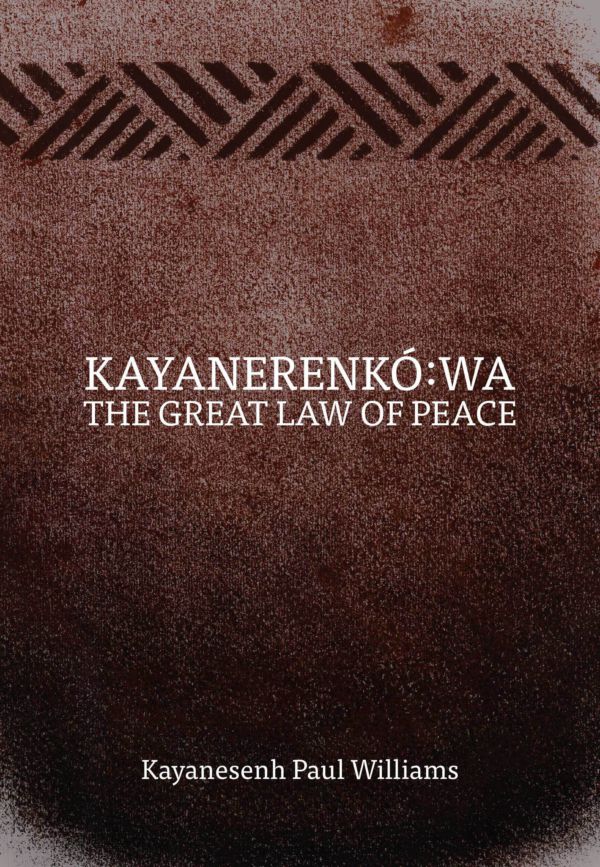
Kayanerenkó:wa
The Great Law of Peace
Several centuries ago, the five nations that would become the Haudenosaunee were locked in generations-long cycles of bloodshed. When they established Kayanerenkó:wa, the Great Law of Peace, they not only resolved intractable conflicts, but also shaped a system of law and government that would maintain peace for generations to come.
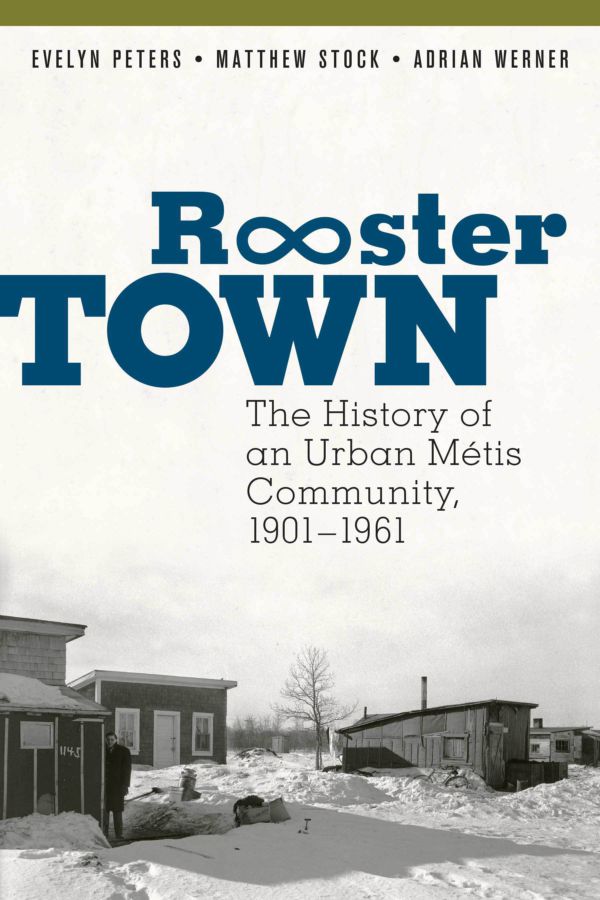
Rooster Town
The History of an Urban Métis Community, 1901–1961
Rooster Town documents the story of a community rooted in kinship, culture, and historical circumstance, whose residents existed unofficially in the cracks of municipal bureaucracy, while navigating the legacy of settler colonialism and the demands of modernity and urbanization.
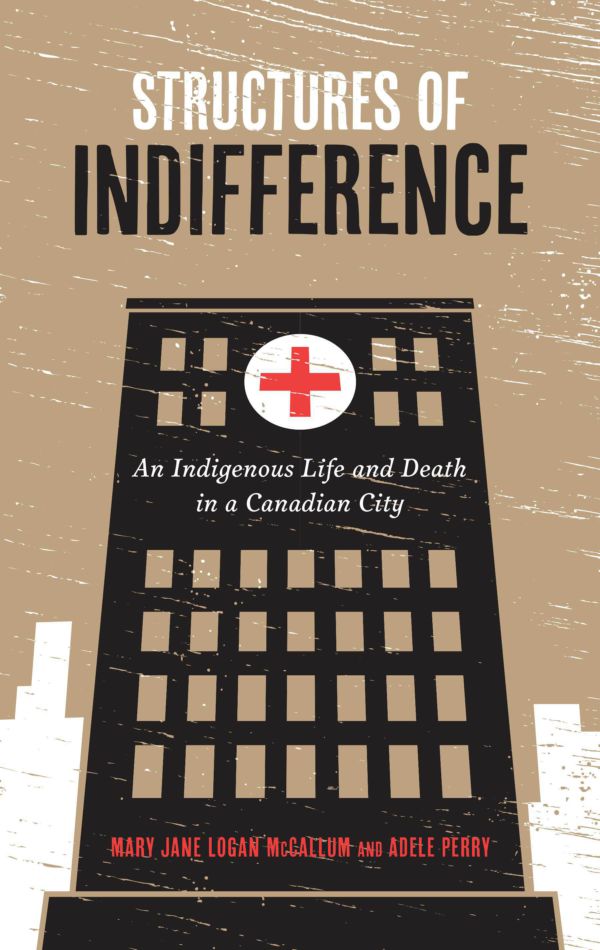
Structures of Indifference
An Indigenous Life and Death in a Canadian City
Structures of Indifference tells us about ordinary indigeneity in the city of Winnipeg through Brian Sinclair’s experience and restores the complex humanity denied him in his interactions with Canadian health and legal systems, both before and after his death.
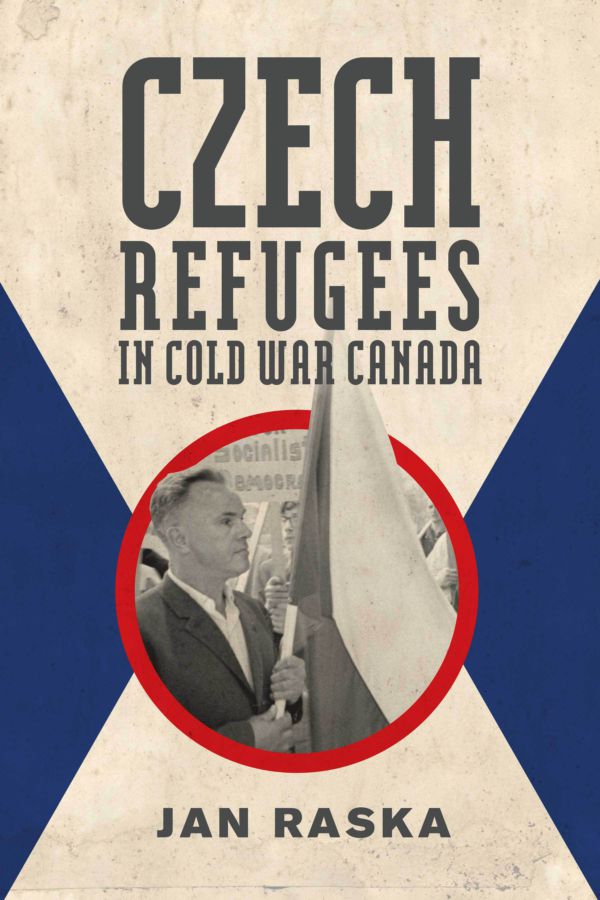
Czech Refugees in Cold War Canada
1945–1989
Jan Raska’s Czech Refugees in Cold War Canada explores how these newcomers joined or formed ethnocultural organizations to help in their attempts to affect developments in Czechoslovakia and Canadian foreign policy towards their homeland.
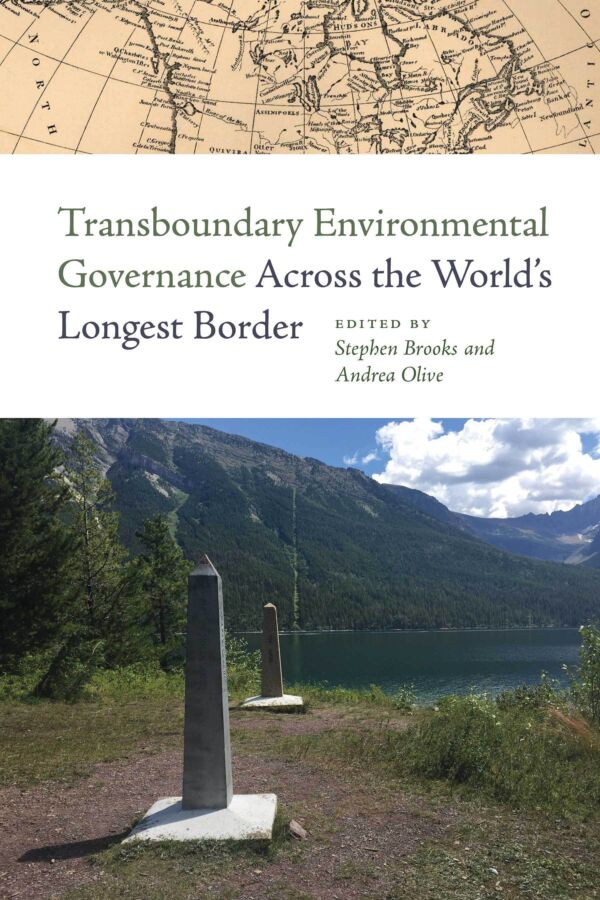
Canada and the United States share a border that spans several of the world's major watersheds and encompasses the largest reserves of fresh water on the planet. The contributors to this volume examine the state of the existing transboundary relationship between Canada and the United States.
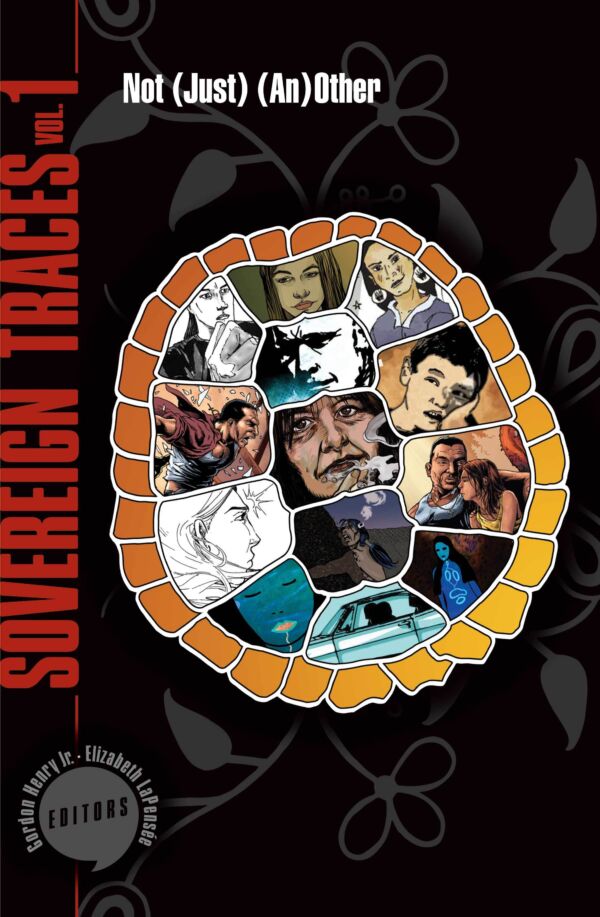
Sovereign Traces, Volume 1
Not (Just) (An)Other
Sovereign Traces: Not (Just) (An)Other merges works by contemporary writers such as Gordon Henry Jr., Gerald Vizenor, Warren Cariou, Niigaanwewidam James Sinclair, Louise Erdrich, Joy Harjo, Richard Van Camp, and Gwen Westerman with imaginative illustrations by U.S. and Canadian artists.
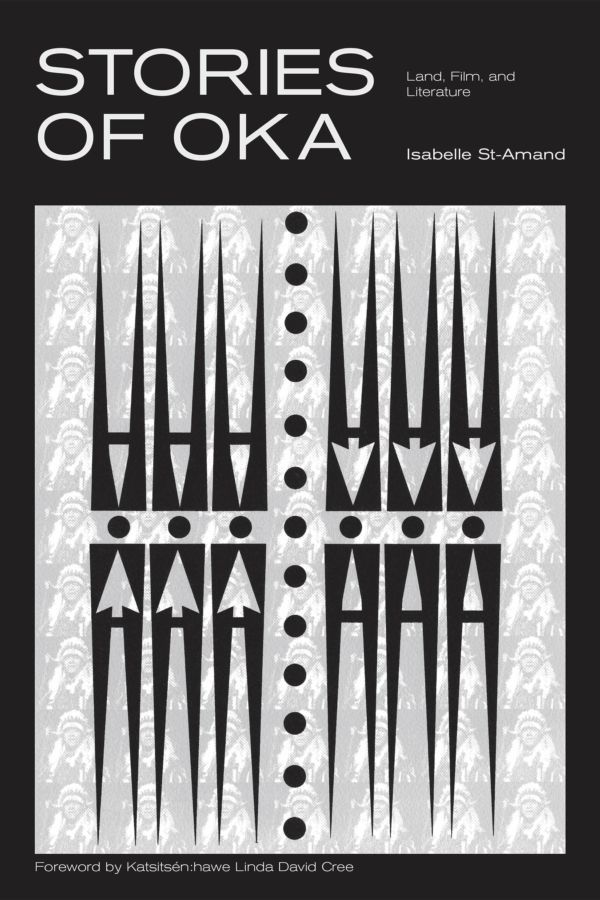
Stories of Oka
Land, Film, and Literature
In the summer of 1990, the Oka Crisis—or the Kanehsatake Resistance—exposed a rupture in the relationships between settlers and Indigenous peoples in Canada. Stories of Oka: Land, Film, and Literature examines the standoff in relation to film and literary narratives, both Indigenous and non-Indigenous.
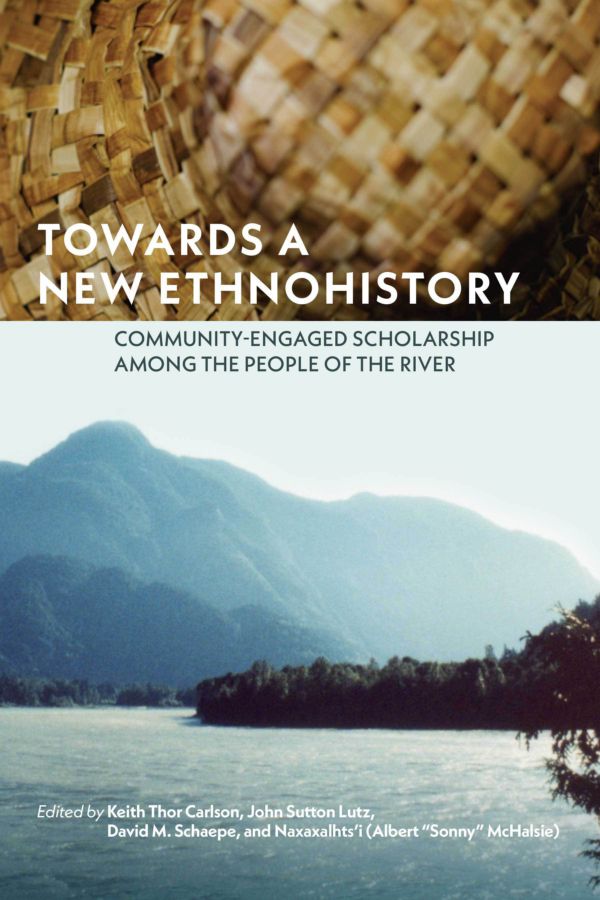
Towards a New Ethnohistory
Community-Engaged Scholarship among the People of the River
Community-engaged scholarship invites members of the Indigenous community themselves to identify the research questions, host the researchers while they conduct the research, and participate meaningfully in the analysis of the researchers’ findings.
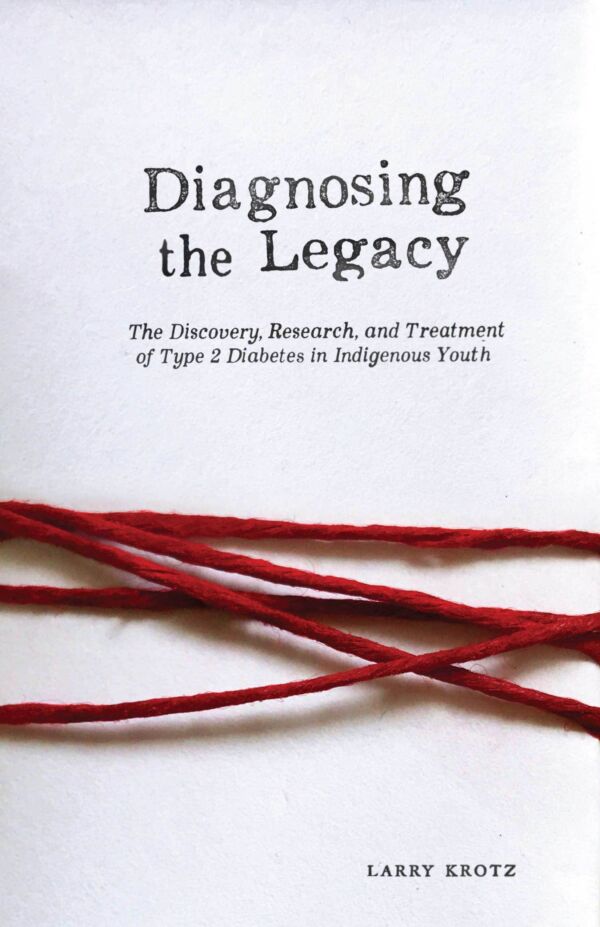
Diagnosing the Legacy
The Discovery, Research, and Treatment of Type 2 Diabetes in Indigenous Youth
Indigenous youngsters from two communities in northern Manitoba and northwestern Ontario were showing up not with with what looked like type 2 diabetes. Over the next few decades more children would confront what was turning into not only a medical but also a social and community challenge.
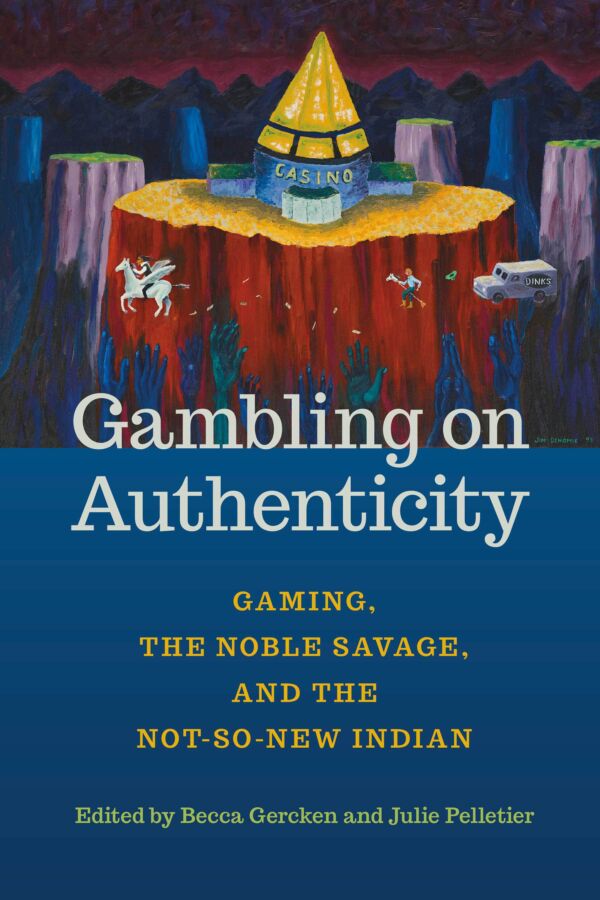
Gambling on Authenticity
Gaming, the Noble Savage, and the Not-so-New Indian
A great tool for the classroom, Gambling on Authenticity works to illuminate the not-so-new Indian being formed in the public’s consciousness by and through gaming.
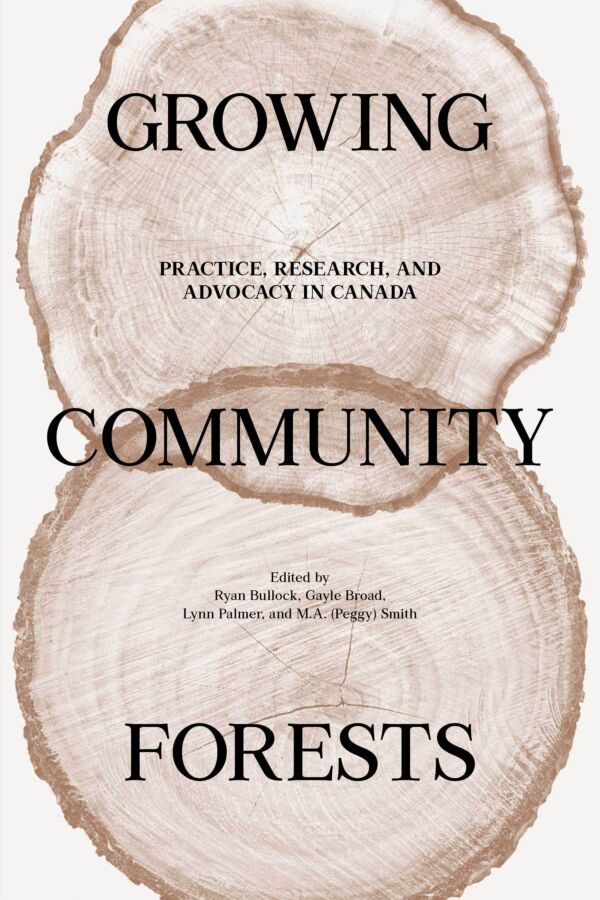
Growing Community Forests
Practice, Research, and Advocacy in Canada
Canada is experiencing an unparalleled crisis involving forests and communities across the country. The creation of community forests is one path that promises to build resilience in forest communities and ecosystems.
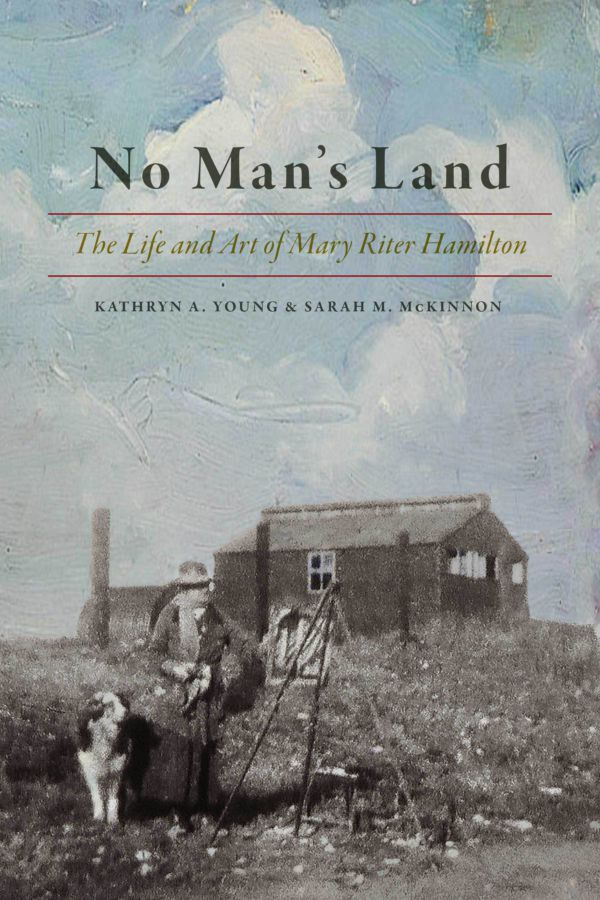
No Man's Land
The Life and Art of Mary Riter Hamilton, 1868-1954
The life story of artist Mary Riter Hamilton (1868-1954) is one of tragedy and adventure, from homestead beginnings, to genteel drawing rooms in Winnipeg, Victoria and Vancouver, to Berlin and Parisian art schools, to Vimy and Ypres, and finally to illness and poverty. No Man’s Land is the first biographical study of Hamilton.
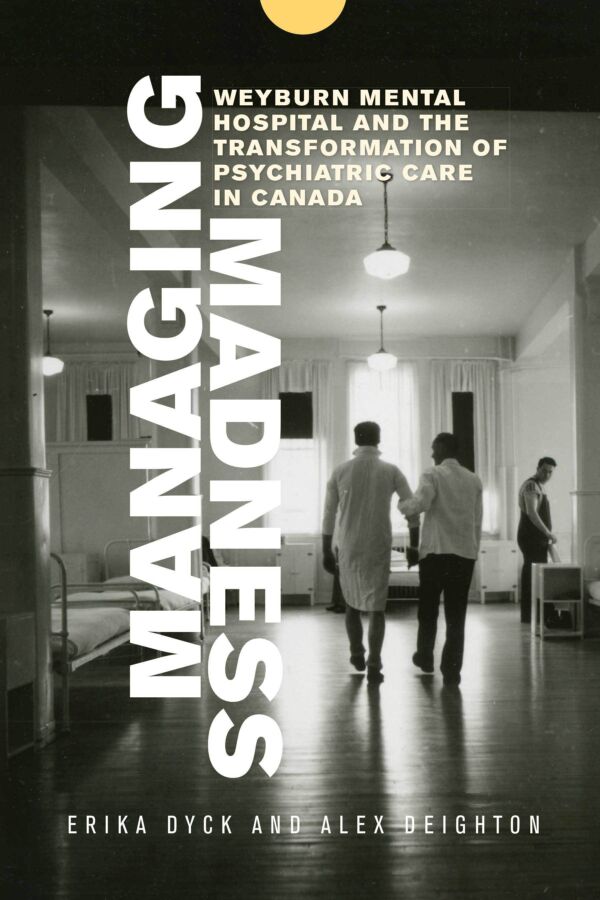
Managing Madness
Weyburn Mental Hospital and the Transformation of Psychiatric Care in Canada
The Saskatchewan Mental Hospital at Weyburn has played a significant role in the history of psychiatric services, mental health research, and providing care in the community. Its history provides a window to the changing nature of mental health services over the 20th century.
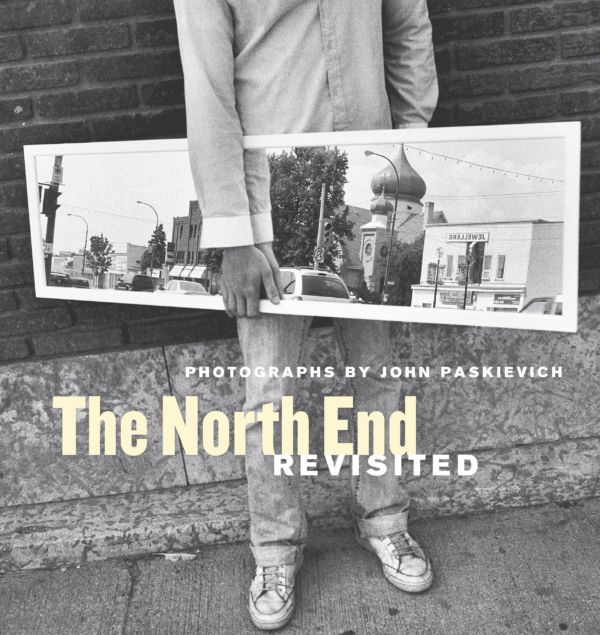
The North End Revisited
Photographs by John Paskievich
Cities and the people who live in them are enduring subjects of photography. Winnipeg’s North End is one of North America’s iconic neighbourhoods, a place where the city’s unique character and politics have been forged.
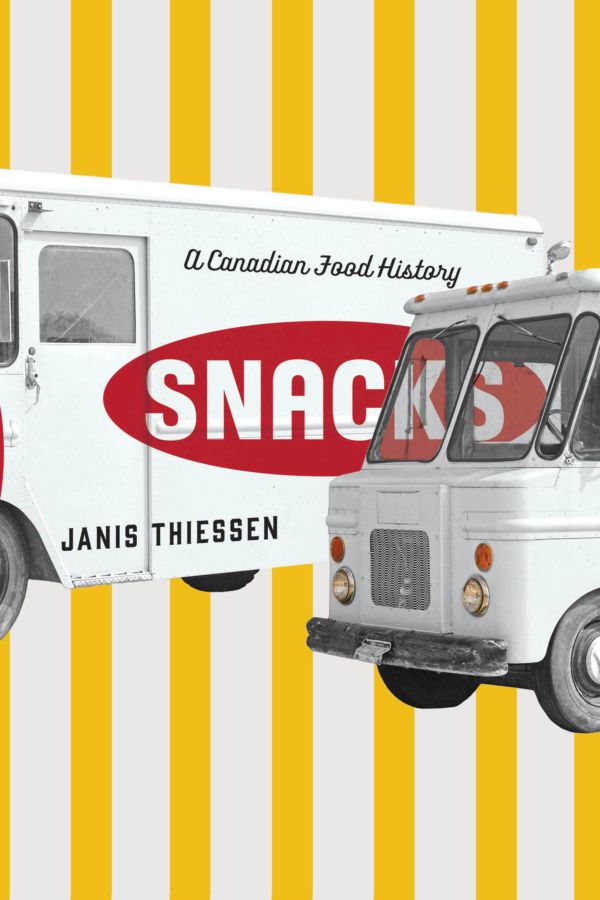
Snacks
A Canadian Food History
Through extensive oral history and archival research, Thiessen uncovers the roots of our deep loyalties to different snack foods, what it means to be an independent snack food producer, and the often-quirky ways snacks have been created and marketed.
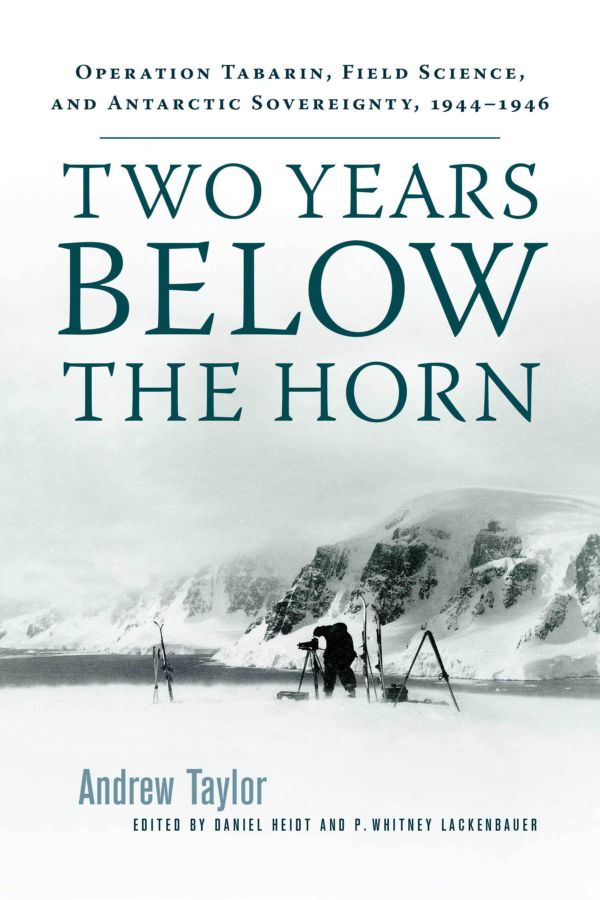
Two Years Below the Horn
Operation Tabarin, Field Science, and Antarctic Sovereignty, 1944-1946
The fascinating account of the groundbreaking Antarctic expedition Operation Tabarin which marked a critical moment in polar exploration.
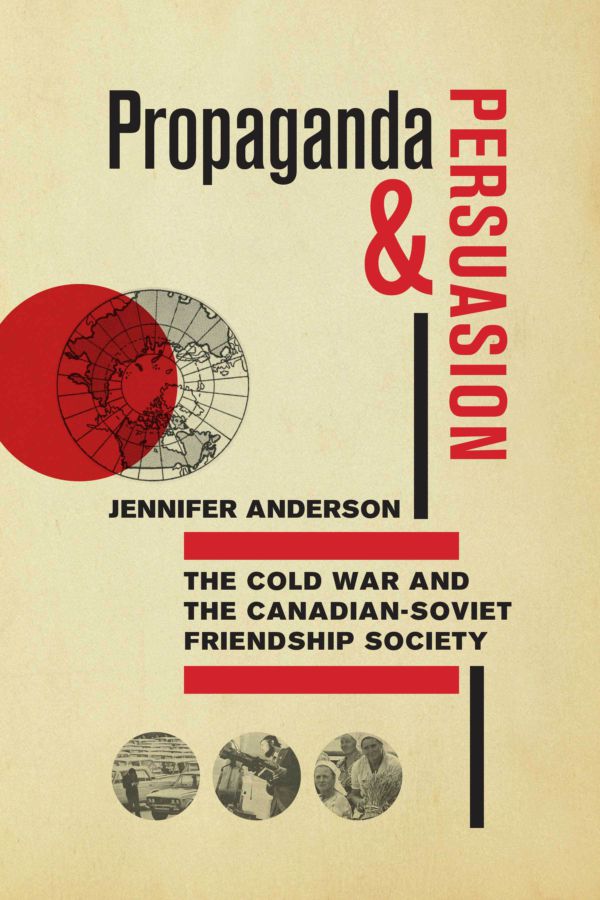
Propaganda and Persuasion
The Cold War and the Canadian-Soviet Friendship Society
During the early Cold War, thousands of Canadians attended events organized by the Canadian-Soviet Friendship Society (CSFS) and subscribed to its publications. Using previously unavailable archival sources and oral histories, Propaganda and Persuasion looks at the CSFS as a blend of social and political activism.
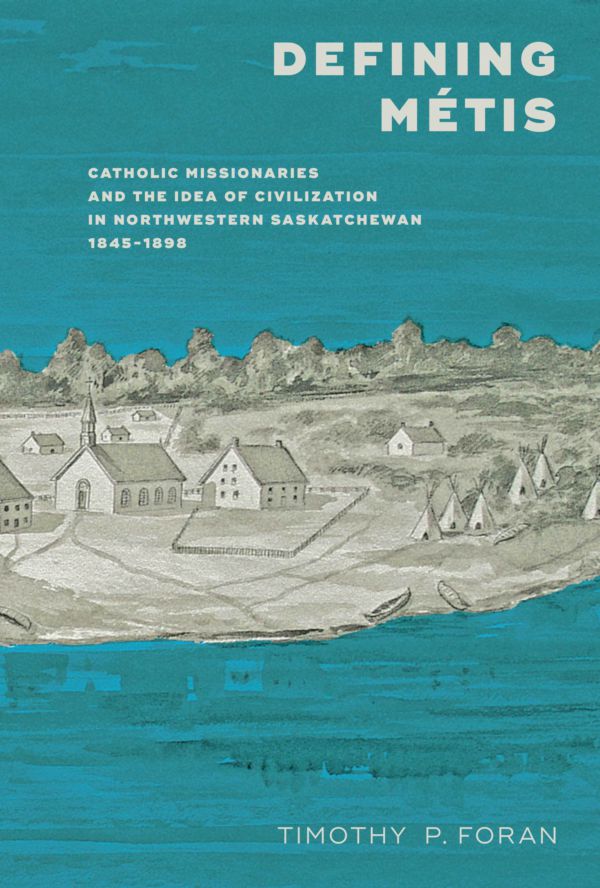
Defining Métis
Catholic Missionaries and the Idea of Civilization in Northwestern Saskatchewan, 1845-1898
Defining Métis examines categories used in the latter half of the nineteenth century by Catholic missionaries to describe Indigenous people in what is now northwestern Saskatchewan. It argues that the construction and evolution of these categories reflected missionaries’changing interests and agendas.

